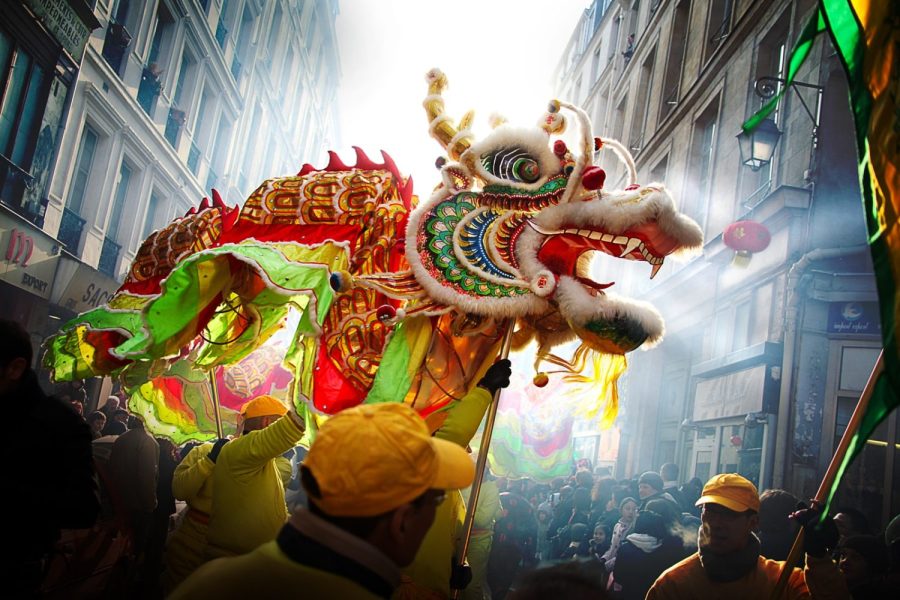Chinese New Year 2023
Chinese New Year will begin on January 23rd this year. The festivals consist of fireworks, lights, and delicious food.
December 12, 2022
Festivities of alluring dance, fireworks, colorful lanterns, and the beauty of traditional foods are prevalent during Chinese New Year, also known as Lunar New Year. Different cultures, religions, and regions that make up millions across the globe honor this 15-day celebration in welcoming the first new moon of the lunar calendar.
This important time is also known as the Spring Festival, because Chinese New Year falls within half a month of the start of spring, commonly associated with February 4th, the first 24 solar terms of Chinas solar calendar.
According to the legend, the celebration of Chinese New Year derived from a battle against the Nian, an ancient beast that attacked people on the night before the beginning of the new year. To scare away the beast, every family from every village would put red paper on their doors and set off fireworks and firecrackers to chase the monster away. It was found that the Nian was afraid of the color red and loud noise. The tradition has continued to this present day, but the meaning of the commemoration has shifted to gain good fortune.
Communities hold celebrations of dragon and lion dances, and encouraging the noise and festivities with firecrackers, gongs, drums, and bells, which is said to ward off evil spirits. But these traditions do differ. For example, in Vietnam, parades feature the Mua Lan, the dance of the hybrid lion, dragon, and unicorn that follows a large symbol of strength.
The festival is typically celebrated in China, and several other Asian countries. Given that the lunar calendar is based on the cycles of the moon, the holiday usually varies from year to year. It usually begins between January 21st and February 20th, in the context of Western calendars.
Given that each year in the Chinese calendar is assigned an animal, one of the 12 animals of the Chinese zodiac that are honored during this time. This Year is the year of the Rabbit. Those in the Year of the Rabbit were commonly born in 1939, 1951, 1963, 1975, 1999, and 2011.
“Just as Christmas is a highlight of the year for many Western people, so is the Spring Festival, or Lunar New Year, to the Chinese all over the world,” said Dr. Jianguo Chen, who is an associate professor of Chinese at the University of Delaware, according to MSN.

